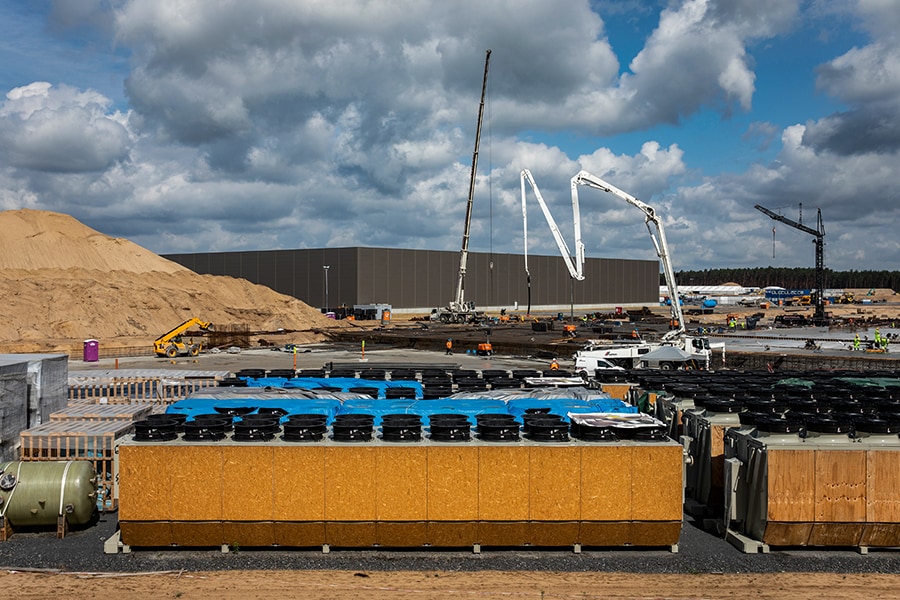
Tesla's factory in Berlin runs into activists, red tape and lizards
Tesla's first major assembly plant in Europe has strong support from regional political leaders, but it has been held up by legal challenges from environmental groups, delays in the approval process by regional and national agencies, and the carmaker's own revisions to the plan
 The Tesla plant in Grünheide, Germany on July 2, 2021, is at least six months behind schedule, according to local officials. And Tesla may be even further away from producing cars in Germany because construction has only just begun on an adjacent factory that will supply batteries. Image: Andreas Meichsner/The New York Times
The Tesla plant in Grünheide, Germany on July 2, 2021, is at least six months behind schedule, according to local officials. And Tesla may be even further away from producing cars in Germany because construction has only just begun on an adjacent factory that will supply batteries. Image: Andreas Meichsner/The New York Times
GRÜNHEIDE, Germany — The vast pale gray factory with its own exit on the autobahn, surrounded by a pine forest east of Berlin, was supposed to be producing shiny new Teslas by now. Instead it has become a manifestation of what happens when Silicon Valley ambition collides with German procedure.
The $7 billion factory, which will supply the fast-growing European market for electric cars, is at least six months behind schedule, according to local officials. And Tesla may be even further away from producing cars in Germany because construction has only just begun on an adjacent factory that will supply batteries. Tesla declined to comment.
Tesla’s first major assembly plant in Europe has strong support from regional political leaders, but it has been held up by legal challenges from environmental groups, delays in the approval process by regional and national agencies, and the carmaker’s own revisions to the plan. Tesla must also find new homes for the site’s current residents: a species of lizard, and the kind of snake that likes to eat it.
The slipping start date could prove costly to Tesla. It buys time for competing manufacturers like Volkswagen, Mercedes-Benz and Renault to try to establish their own expanding lineups of electric cars.
Tesla’s Model 3, which the company imports to Europe from China or the United States, is the top-selling electric vehicle on the continent. But Volkswagen’s electric models, like the ID.3 hatchback and ID.4 sport utility vehicle, introduced during the last year, have surpassed Tesla in combined sales, according to Matthias Schmidt, an independent analyst in Berlin who tracks electric car sales in Europe.
©2019 New York Times News Service







